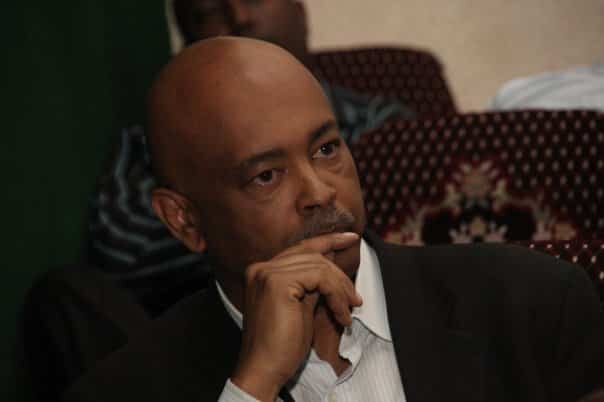
By Kebour Ghenna
There is strong evidence that NMA/“ABEN” and EZEMA’s opposition elites are simply satisfied with their current political gains, even though the level of unrest, political and economic crises in the country did not change significantly. In general, conventional wisdom tells us during continuous unrest, oppositions should be expected to remain mobilized until their demands are obtained or were repressed or pushed back from the political space.
So why is EZEMA and NMA/“ABEN” less willing to mobilize, when they could have done so?
Simple! They do not care about their ideology (have no ideology, to start with). All they care about is to unfairly align themselves to be part of the government for their vested interest. The role that these opposition parties would have played is largely played by the press and the You Tubers. The two opposition parties do not seem capable of proposing alternative policies on some crucial issues or do not want to raise their voice against the government. This is not just sad, but also unfair to our people.
In today’s divided political environment PM Aby’s administration allowed few (very few) top leaders of EZEMA and NMA/“ABEN” to participate in his government. In doing so PM Aby controlled the two parties’ participation in the political arena while limiting their demands. They (the two parties) became loyalists or moderate (whichever name you want to give them) and so lost their incentives to demand political change.
As part of their role in voicing popular dissatisfaction, the loyalists are allowed to challenge the regime on certain issues, but, and I want to emphasize this, in return for this privilege they have to agree to maintain the system. The PM won’t look too kindly on politicians that try to destabilize his regime. Isn’t a high price to pay for an opposition party?
Right now, the government is sleepwalking into an authoritarian future to simply keep going with the help of brute force. He (the Prime Minister) is running the government without any opposition, bending inclusive, secular, and progressive rules and regulations to please global capital at the cost of people and their lives.
In contrast to the loyalists, parties like OFC or BALDERAS or others capitalize on increasing discontent to mobilize popular support. Yes, they face higher costs for mobilizing popular protest than their loyalist counterparts. However, unlike loyalists, they are not penalized more for destabilizing the system. And in the long run, as crises continue, these radicals gain strength to challenge the regime, and increase their probability of success.
Moving into uncharted territories
In any case, both NMA/“ABEN” and EZEMA are soon expected to hold their internal debates to settle the future of their parties. The contest is between those loyalists who hope their partnership with the government would expand their powers, and those radical opponents who want to demand reforms until their demands are met and more likely to form coalitions across ideological or ethnic divides.
Who’s to win?
We don’t know. But like the decision to get married, start a bakery, or start a war, it will affect the country’s political direction for decades to come. Let’s be clear, without active opposition there is no democratic life. Both EZEMA and NMA/“ABEN” are not dead yet but they are on a ventilator. Once you are on a ventilator, the chances of recovering become slim.
Democracy without Opposition is like coffee without caffeine.

Who are these NMA/“ABEN” and EZEMA? What are they? I hate to see people talking using abbreviations. What are those abridgments stand for?
Dear mr. Gena,
to put BALDERAS as radical, and put in one sentence with OFC, i think you are missing here a lot.
Please start with self reflection, explain why go for ezema for election. Ahunaye ayne ?!
Second:
you lost a few words, what is hapenning in Addis Abeba, and with the ppl Amhara .
It is not the time to stay as mediator, you can more.
otherwise, leave it for others.
sincerly…
Kebour Ghenna made an ambivalent media comment when the TPLF was advancing to the center of the country. His comments raised questions regarding his political position on the conflict with the TPLF.
These two parties, although they have large number of gullible members that do not proscribe to the ulterior motive of their founders, have essentially achieved their raison d’etre: the cooptation of pro-Ethiopia and pro-Amhara forces to allow EPRDF #2 (Prosperity Party) to consolidate power without any meaningful challenge. Their best service to Ethiopian politics would be to disband and clear the road to for a genuine citizen-based popular struggle for freedom and justice.
HE Kebour Ghhenna, with due respect and appreciation your love and dedication to our beloved Ethiopia,I am here writing to put my sincere thankfulness for all your effort to being democracy and justice in Ethiopia including your valuable advice that was not rejected by both leaders Abiy and Debresion to talk and settle the differences instead of going toward that consumed the lives of many hundred thousands Ethiopians.
May the Lord Jesu Christ bless your effort for our beloved Ethiopia.
Degone Moretew,Pastor
Ato Kibur,
Thank you sir for sharing your thoughts on this important issue that should be the concern of all Ethiopians. I was not clear about one issue you raised though. Is the role of an opposition in any democracy ‘ destabilizing the
ruling government’? Is it not rather tabling citizens’ demands and voices and advocating for policy change in a legal and orderly manner and preparing for the next election to implement these proposed changes? Please educate me. Thanks.
Mr. Kebour Gena wants to play it safe by postering himself as a “political analyst” – the timing is more interesting than the “analysis”.